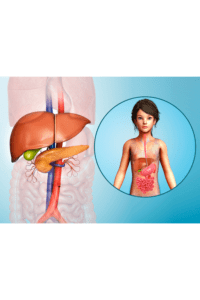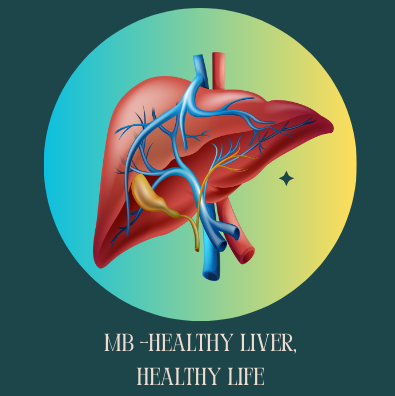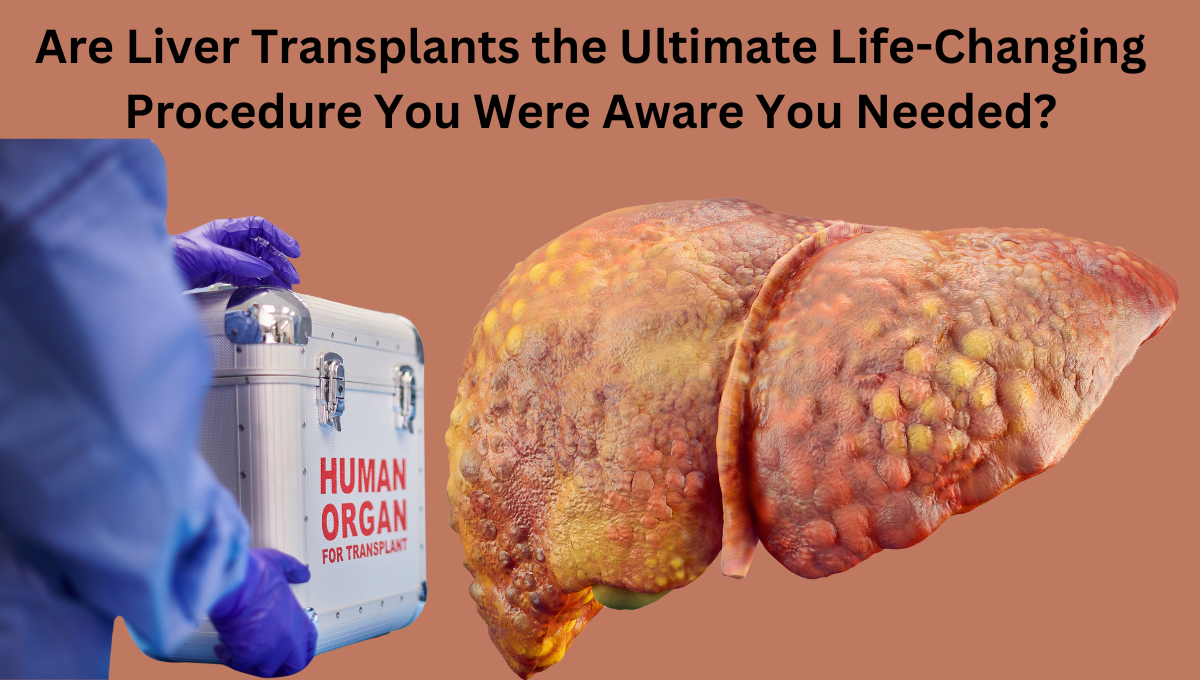Are Liver Transplants the Ultimate Life-Changing Procedure You Were Aware You Needed?
Overview
Are Liver Transplants the Ultimate Life-Changing Procedure You Were Aware You Needed? Liver transplants have a special and transforming place in the world of medical miracles. For those with serious liver disease, a liver transplant can be the ultimate life-changing experience, often serving as the final hope when all other treatments have failed. Although liver transplants are well known, few people are fully aware of the significant influence they can have on a person’s life.

This article examines the subtleties of liver transplantation, emphasizing its importance, the life-changing effects it has on recipients, and the difficulties this intricate process presents. Knowledge about Liver Transplants A liver transplant is a surgical operation where a healthy liver from a donor is used to replace a damaged liver. When other treatments are no longer working for those with chronic liver disorders, liver failure, or specific liver malignancies, this technique is usually taken into consideration.
Typical Causes of Liver Transplants A liver transplant may be necessary for a number of reasons, such as: Chronic liver damage that results in hepatic malfunction and scarring is known as cirrhosis.

**Hepatitis B and C**: Viral infections that can lead to long-term damage and inflammation of the liver.
**Alcoholic Liver Disease**: Chronic excessive alcohol use causes damage to the liver. A severe type of non-alcoholic fatty liver disease that causes inflammation and damage to the liver is called non-alcoholic steatohepatitis (NASH). Acute liver failure is the rapid decline in liver function in a previously healthy individual, frequently brought on by infections or poisons. – Hepatocellular carcinoma is one type of primary liver cancer that may require a transplant.
## The Liver Transplant Procedure Getting a liver transplant is a complicated process with many steps and factors to take into account.
Assessment and Listing Before receiving a liver transplant, a comprehensive medical evaluation is required. This evaluation establishes the degree of liver disease, examines general health, and determines transplant suitability. A waiting list for a donated organ is created for patients who are deemed eligible.
The Game of Waiting The waiting time is one of the most difficult parts of liver transplantation. Many patients must endure a long and frequently unpleasant wait since the demand for livers far outstrips the availability. Blood type, body size, and urgency of need—which is frequently evaluated using ratings such as the Model for End-Stage Liver Disease (MELD)—are among the parameters that dictate the distribution of livers.
Surgery and Convalescence The patient is informed and has the transplant procedure done as soon as a suitable donor liver becomes available. Complex surgery, which may take several hours, is required to remove the damaged liver and replace it with a healthy donor liver. After surgery, patients are closely monitored in intensive care for a while before moving on to standard care to continue their recuperation. Patients should anticipate a few months of recuperation, which will need regular check-ups with the doctor and lifestyle modifications. Life requires anti-rejection drugs to keep the immune system from attacking the newly formed liver. Liver Transplants’ Revolutionary Effect A successful liver transplant has effects that go well beyond its therapeutic advantages; it has the power to significantly alter people’s lives. Restoring Health: A liver transplant can significantly improve the quality of life for many individuals. Liver failure symptoms like weariness, jaundice, and cognitive problems can be dramatically and quickly relieved. Many patients report a notable improvement in their quality of life, regaining the vitality and energy they had previously lost.
Psychological and Emotional Advantages A successful liver transplant has an equally important psychological impact. Patients frequently report feeling happier, having less anxiety, and having more mental clarity. A more optimistic view of life and hopes for the future might also result from the optimism and opportunity that a liver transplant offers.
Reestablishing Contact with Life Patients can resume hobbies and interests they may have put on hold because of illness once their health has improved. This could entail taking up hobbies, going back to work, and engaging in social activities. Being able to live freely and completely changes people’s lives and brings back the happiness and contentment that existence has to give.
Impact on Families and Society Families are significantly impacted by liver transplants in addition to the recipient. When loved ones see the change in their impacted family member, they frequently feel relieved and happy again. Families can reunite and prosper together as a result of the lessened stress caused by the caregiving load. Difficulties and Things to Think About Liver transplants can change a person’s life, but there are drawbacks that need to be recognized. The Waiting List’s Reality Many patients experience uncertainty while waiting for a transplant due to demographic realities and organ shortages. Strong support networks and coping strategies are necessary during the wait, which can be a period of anxiety, dread, and declining health. Complications and Rejection Liver transplantation is not risk-free, even with its life-changing advantages. Organ rejection, infections, or surgical complications are always possible. Although essential, anti-rejection drugs might have unintended consequences that must be controlled.
Lifetime Dedication A lifetime of health maintenance is necessary after a liver transplant. Following a transplant, lifestyle modifications, medication adherence, and routine medical checkups become essential aspects of life. In order to preserve their health, patients need to be ready for this long-term commitment. The Wider Effect and Knowledge The shortage that impacts so many people awaiting transplants can be addressed in part by increasing awareness of the urgent need for organ donors. Preventing serious liver illnesses that may necessitate transplants can also be greatly aided by education regarding liver health, early detection, and intervention.
Wrap-up
Without a question, one of the greatest medical miracles is liver transplantation. Although the path is difficult and complicated, it can have a profound and, frequently, life-saving effect on people and their families. A transplant can be the difference between life and death for people suffering from severe liver disease, opening the door to newfound opportunity, happiness, and health. This remarkable process serves as a testament to the remarkable resilience of the human spirit and the advancements in modern medicine. It is hoped that more lives will be improved and that more people will be able to experience the remarkable transformation that a liver transplant may bring about as we continue to improve transplantation procedures and raise donor awareness.
 https://analytics.google.com/analytics/web/#/analysis/p405220706
Skip to content
https://analytics.google.com/analytics/web/#/analysis/p405220706
Skip to content 

2 thoughts on “Are Liver Transplants the Ultimate Life-Changing Procedure You Were Aware You Needed?”